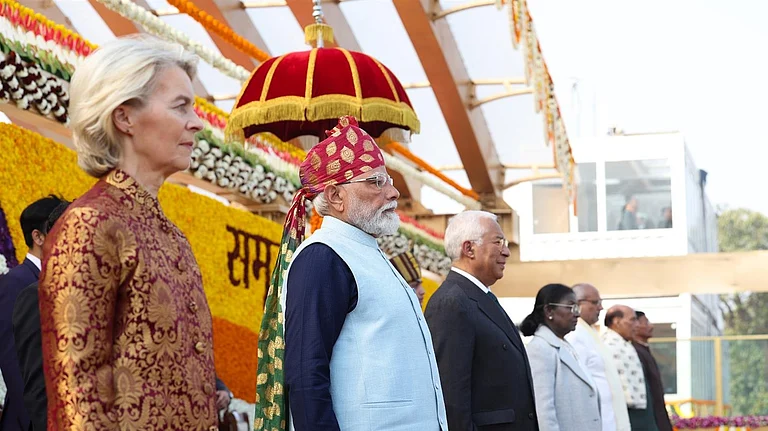The European Union (EU) has informed the WTO members that it will not postpone the implementation of its deforestation regulation despite objections from major agriculture-exporting countries, including Brazil, India, Indonesia and the US, an official said on Wednesday.
The issue came for discussion in the World Trade Organisation's (WTO) committee on agriculture on September 25 and 26.
The EU Deforestation Regulation (EUDR) will come into force from December 30.
"At the Agriculture Committee meeting today, the EU announced that it will not postpone the application of the EUDR, defying the outcry from major agriculture-exporting countries, including Brazil, India, Indonesia, and the US," a Geneva-based official said.
The development assumes significance as according to a report of the economic think tank GTRI, India's exports of products like coffee, leather hides, and paperboard worth $1.3 billion annually to the European Union will be impacted due to the deforestation regulation.
Global Trade Research Initiative (GTRI) has said that the EUDR appears to prioritise protecting its own agricultural sector and promoting exports, making imports more difficult as it is a trade barrier disguised as a green measure.
The regulation covers cattle, buffalo, the meat of bovine animals, preparations, oil cake, soya beans, palm oil, cocoa beans, powder, chocolate, coffee, leather hide, skin, paper, paperboard, wood, wood articles, wood pulp, boards, and wood furniture.
The exporters now have to ensure that these products have been grown on land that has not been deforested after December 31, 2020. The new rules will apply to large firms after 18 months and small firms after 24 months. Thus, the timeline for large firms is December 2024 and for small firms is June 2025.
Addressing questions from a group of trading partners (Australia, Brazil, Canada, Ecuador, India, Indonesia, New Zealand, Paraguay, and the US), the official said that the EU stated that the regulation would come into effect on December 30.
The EU has argued that any postponement would require a legislative change, and this would not achieve our goal of providing legal predictability for operators as soon as possible.































